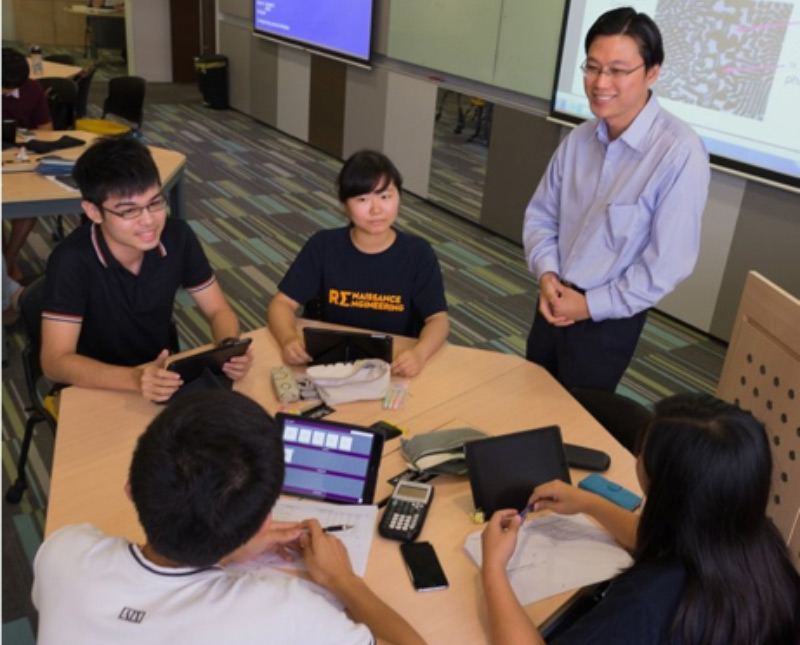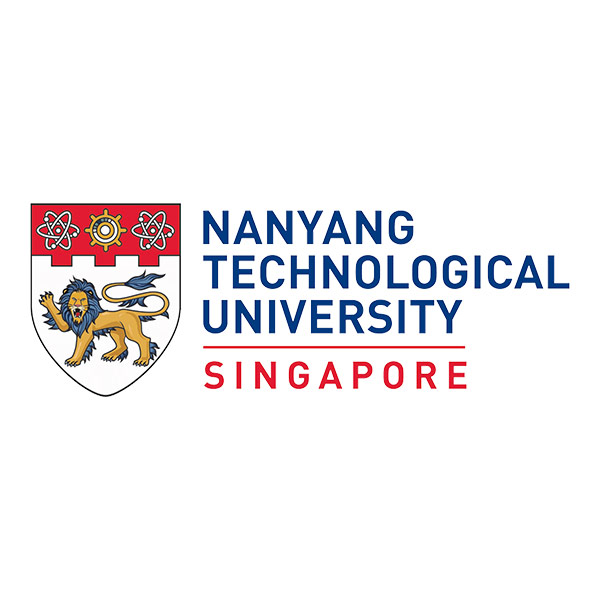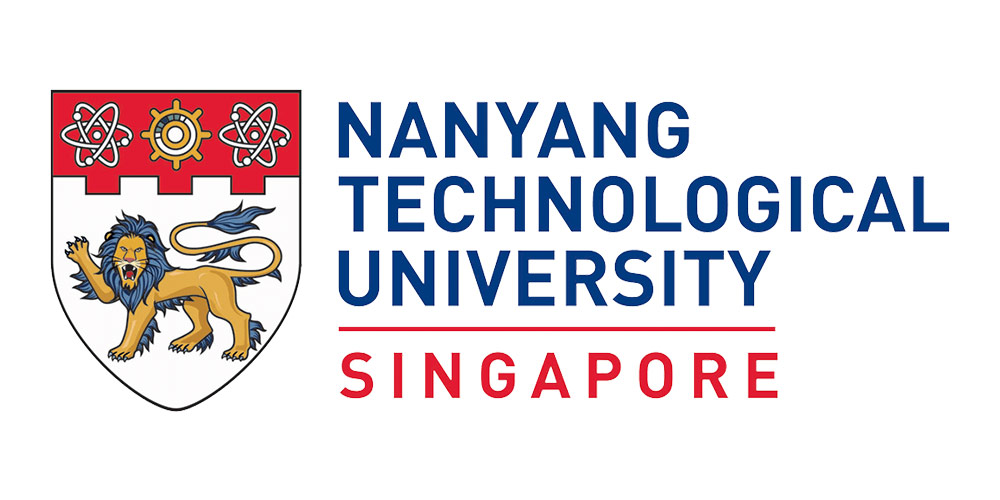With the Technology-Enhanced Learning (TEL) initiative under the Nanyang Technological University Education framework, the University has been transforming the content of its courses to support its vision to develop NTU graduates as 21st century learners equipped with five core skills/competencies, namely Character, Creativity, Competence, Communication and Civic-mindedness. Over the past few years, classes at NTU have been moving towards technology-enhanced learning (TEL), which integrates sound pedagogical principles with the affordances of multimedia components such as 2D/3D animations, simulations, as well as augmented and virtual reality. The following sections highlight the different aspects of TEL @ NTU.
Flipped-classroom @ NTU
Under the flipped classroom approach, content designed carefully using sound learning principles incorporating embedded quizzes, videos, simulations and animation to promote engagement and provide formative feedback to learners, is made available online for access by students anytime, anywhere. Such an arrangement enables classroom contact time to be better utilised to promote deeper learning and face- to-face discussion.
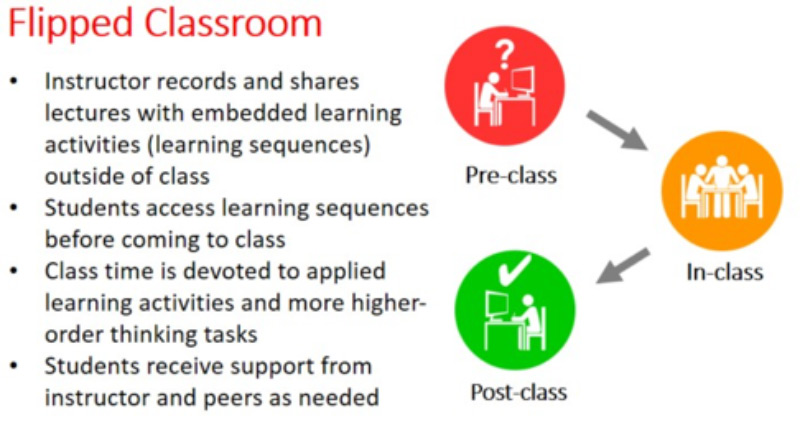
MOOC @ NTU
Internationally, NTU has some of the most popular courses hosted on Coursera—one of the world’s leading Massive Open Online Course (MOOC) platforms. To date, these courses have seen a total worldwide enrolment of more than 225,000 students, with 17,000 students on the Signature Track since the launch of our first MOOC in February 2014.
NTU allows credits or academic units from MOOC courses to be used to fulfil a student’s degree requirements. About 1,000 NTU students have signed up under the more stringent Signature Track that qualifies for credit transfer.
TEL Transformation @ NTU
In 2014, NTU embarked on the Technology-Enhanced Learning (TEL) initiative and transformed about 500 courses to date.
Technology-Enhanced Learning (TEL) courses @ NTU are conducted with a mix of online and face-to- face sessions. These courses leverage sound pedagogy and technological affordances. Learning activities are created using holistic learning design principles to help engage learners and achieve the desired learning outcomes.
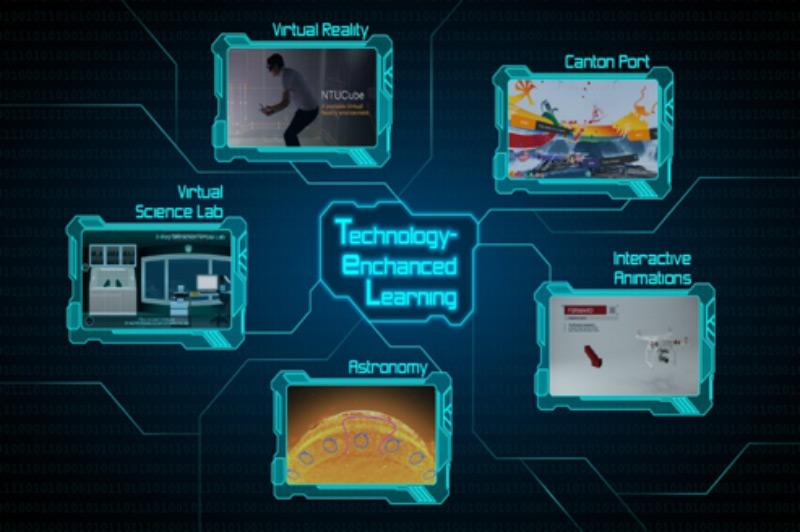
Virtual Reality @ NTU
Virtual reality offers an immersive experience for students. For instance, instead of ploughing through volumes of notes and readings, students taking a history course can now make their way to the NTU iCube at The Learning Pod @ South Spine, don a pair of funky-looking glasses, and hold a controller in their hands be teleported back in space and time to explore an 18th-century Canton.
Learning Space Transformation @ NTU
In 2015, NTU officially opened The Hive, the centrepiece of its flipped classroom approach. The Hive comes with 56 smart classrooms equipped with the latest technologies to support team-based learning.
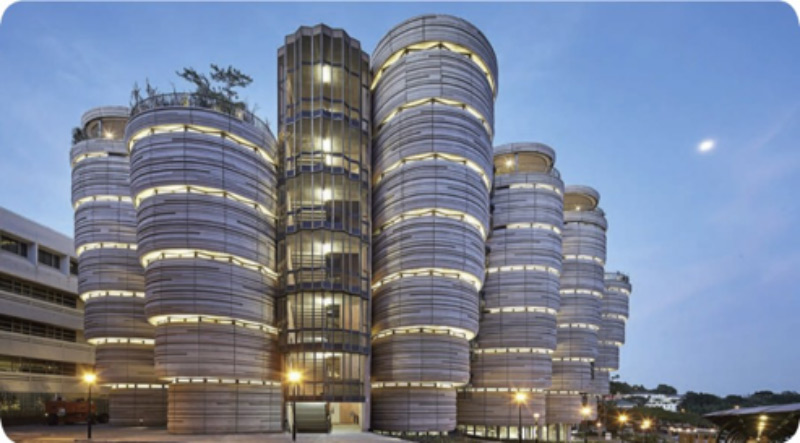
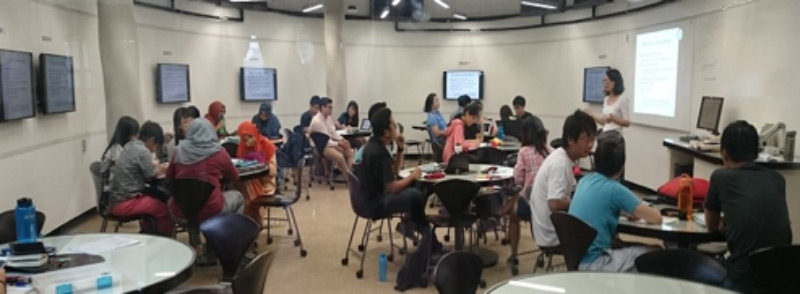
National Education (A National Initiative)
In 2016, NTU embarked on a National Education project, “Singapore: Imagining the Next 50 years” under the TEL initiative. NTU led the production effort for this online course which was a collaboration among six local autonomous universities, namely NTU, NUS, SIT, SUTD, SUSS (formerly UniSIM) and SMU. The course was handed over to all universities in November 2016 upon its completion. In January 2017, NTU launched the course successfully under the School of Humanities and offered the course to all undergraduate students as an elective.
Singapore Technology-Enabled Conference 2015
The inaugural national conference—Singapore Technology-Enabled Learning Experience (Singapore TELE)—brought together the six local universities (NTU, NUS, SMU, SUTD, SIT and UniSIM) to embark on a joint effort and close collaboration to promote technology-enabled learning in shaping future education landscapes at universities in Singapore. Themed “Shaping Future@Universities”, this conference was about what universities are doing now and what we intend to do to shape the future environment in which students in Singapore learn. It focused on a vision of the future where educational technology is widely adopted and closely integrated into the everyday teaching and learning experience to enhance and improve the quality of learning. Nobel Prize-winning physicist Prof Carl Wieman, 64, spoke on how technology could support teaching methods via an interactive hologram from Stanford, about 14,000km away in the United States. The presentation was arranged by NTU, the host of the inaugural conference on technology in learning. It is believed to be the first lecture delivered via hologram by an educational institution here.
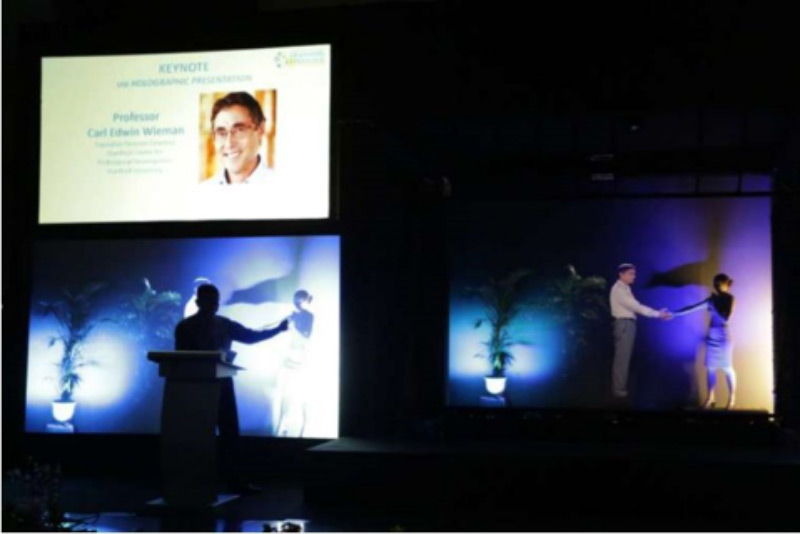
Team-based Learning @ LKC and REP
Nanyang Technological University (NTU) has implemented a new learning pedagogy for its Renaissance Engineering Programme (REP)—Singapore’s most popular engineering programme amongst top A-Level students.
REP bridges engineering, business and the liberal arts and students enrolled in the programme are taught using a team-based learning (TBL) approach that engages students in active learning and critical thinking.
The programme also leverages bespoke learning technological applications and resources designed around TBL to facilitate learning, formative assessment and group collaboration.
